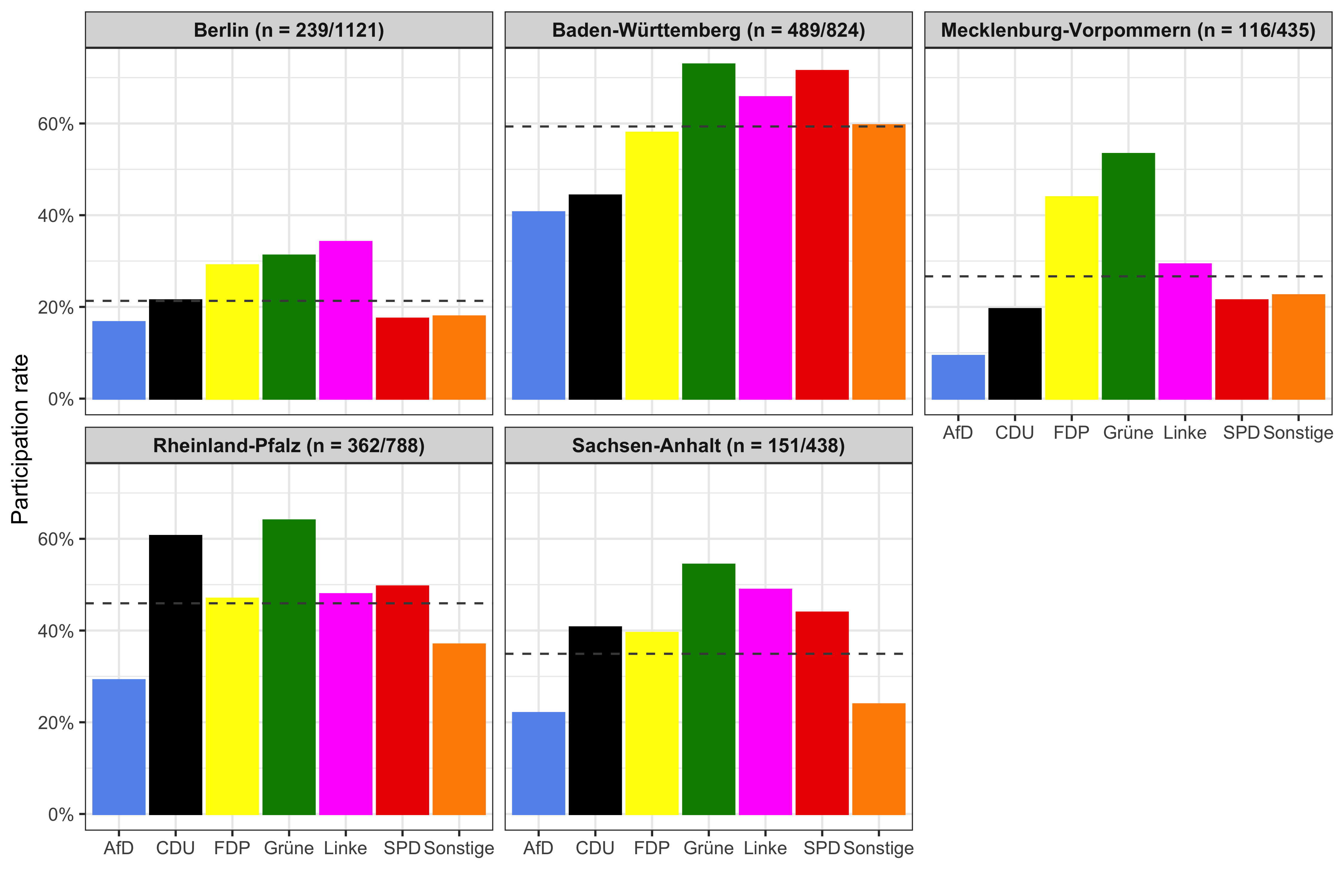Negative campaigning in German elections: Measurement, dynamics, and determinants
Funded by the German Research Foundation DFG (2021-2024)

Summary
Research on negative campaigning (NC), i.e., verbal attacks on political opponents, has gained considerable attention in recent years. Studies suggest that NC can have dysfunctional consequences for democracy (e.g. polarization, declining trust in politics). This applies in particular to negative campaign strategies that attack an opponent personally or in an uncivil manner. However, the causes and effects of NC have rarely been analyzed outside of the United States. This project, jointly led with Jürgen Maier (University of Koblenz-Landau) and Corinna Oschatz (University of Amsterdam) investigates the determinants of the use of NC in German election campaigns at the federal and state level. The aim is to test explanatory factors at the micro level (politicians who use NC) and macro factors (structural conditions during election campaigns).
For this purpose, we first use self-reports from candidate surveys to investigate the use and evaluation of NC by candidates. We draw on the candidate studies conducted as part of the German Longitudinal Election Study (GLES) for the 2013, 2017 and 2021 federal elections. In addition, we will invite all candidates of the relevant political parties who will take part in all of the 2021 Landtag elections to a survey. In order to measure the actual use of NC, we collect the entire social media communication of candidates and hand code a high-quality training dataset that serves as the input for machine learning models for the detection of NC at a large scale. In contrast to established sources such as party manifestos, Twitter data is available at a more fine-grained level (of the individual candidate) and in larger numbers (hundreds of thousands of posts during an election campaign, in standardized form across parties). The results from the analysis of candidate surveys and social media will be linked on the level of individual candidates.
Taken together, the project makes an essential theoretical and empirical contribution towards a better understanding of the determinants of NC (1) over time, (2) at different federal levels and (3) depending on different individual characteristics of politicians.